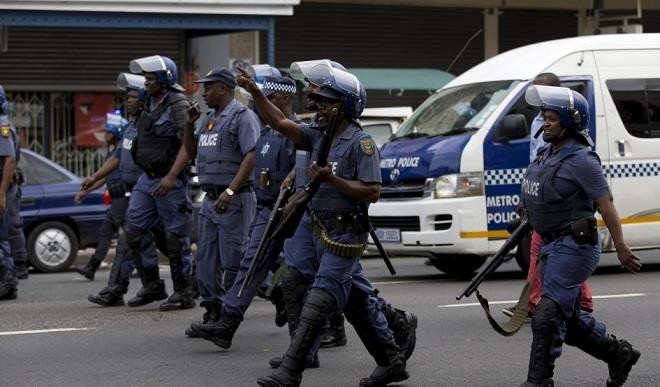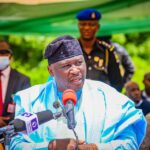These are not easy times for Nigeria. Even before the latest orgy of xenophobic violence targeted at Nigerians and other Africans in South Africa took centre stage, Nigeria was battling with a slew of unfavourable news. There was the issue of about 80 Nigerians caught in the web of America’s Federal Bureau of Investigations (FBI), as having been allegedly involved in financial scams running to millions of dollars.
Then there was also the unfortunate case of the judgement in London which awarded an Irish firm, Process and Industrial Development (P&ID), the sum of $9billion as accumulated damages for a purported breach of contract involving gas supplies which Nigeria entered into with the firm. Tellingly, the judgement also pronounced that P&ID could proceed to foreclose Nigeria’s assets anywhere in the world in order to enforce its claims. Surely for Nigeria, this judgement amounts to pay and die (uncannily resembling P&ID if we were to remove the ‘I’), for we will be surrendering about one-third of our reportedly 40 billion dollar reserve.
This is unfortunate when considered that the people who were allegedly behind this caper are people who have been entrusted with protecting the patrimony of Nigeria and Nigerians
Perhaps unknown to us, years of dealing with Nigerians and our peculiar traits have forced law enforcement, public law and order and even intelligence agencies of countries around the world to invest in research on the Nigerian personality. Incidence after incidence of misdemeanours abroad, word has gotten round that Nigerians are generally to be placed on round the clock watch. It does not help that wherever Nigerians are found abroad, they are likely to be brash, loud and with a proclivity to operate outside the bounds of propriety and more often with a devil-may-care swagger that upsets the ordered norms of the host society thereby calling undue attention to themselves. A number of countries around the world now are wise to the typical Nigerian behavioural pattern and can pick up a Nigerian from among a sea of humanity.
As a result of these findings on Nigeria and Nigerians for quite some time now, the world has been brewing a very strong coffee for Nigeria which we are expected to smell. The world knows that the Nigerian is a product of a society of anything goes (apologies to the late General Salihu Ibrahim). It is a society where law and order, merit and civility are subordinated to the wile and guile of the vile ones amongst us. The world has also found out that unlike citizens of other countries, the Nigerian, from top to bottom of society, more often does not mind a hoot making it at the expense his country. Nigeria is characterised as a rat race society where just about everyone is engaged in no-holds-barred skulduggery to get ahead. It is this dysfunctional behaviour which Nigerians, so used to as a norm in their country, seek to exhibit abroad.
Unfortunately for the Nigerian, saner countries who place high premium on law, order and civility do not have the room to tolerate such behaviours and the Nigerian who is raised in an environment that is the opposite always finds himself attracting the ire of the host citizens and their institutions.
In the wake of the xenophobic violence targeted at Nigerians and other Africans in South Africa, a number of issues about Nigeria and Nigerians have come to light rather unflatteringly.
First, it is not just in South Africa that resentment against Nigerians abound. In Ghana, Kenya and a number of African countries, the general image and reputation of Nigerians is not so savoury. The main complaint is that in their business and other dealings Nigerians all too often resort to cutting corners and non-compliance with the law.
Secondly, although it has been reported that Nigeria’s economy is the largest on the continent, the real situation however paints a different picture. When it comes down to issues in real economic terms Nigeria does not measure up to South Africa and Egypt, the two countries touted as being in the same economic performance bracket as Nigeria. Nigeria is not a manufacturing economy of note. It follows that Nigeria has neither expertise nor value added to export to other countries. South African concerns are present in several sectors of our economy providing expertise and adding value which we cannot ordinarily provide for ourselves. Similarly, Egyptians are constructing our roads bringing in expertise which we do not have in that sector. Both countries also have airline services into Nigeria that we have not been able to run. The two countries also are destinations for many Nigerians on medical tourism. So where really lies our superiority over these countries?
Thirdly, the notion which we have continued to cite on the support Nigeria gave for the liberation of South Africa from apartheid is simply out of sync with present day realities. From the time that South Africa got liberated in 1994 to date, a new generation of South Africans who did not experience what apartheid was have come up. While they may have been told about the contributions of certain countries to the abolition of apartheid, this generation is more concerned with the here and now which pertains to lack of jobs, quality education and the attendant poverty that is generally their lot in post-apartheid South Africa. They are not likely to be persuaded to bear their desperate conditions on the altar of African unity, allowing for others to come and prosper in their country while they battle with poverty, no matter the arguments.
The world is not convinced that with all our endowments, Nigeria should be more known for fraud and criminality. The world and Africa wants to see the good Nigeria which they know we are capable of, not the ugly Nigeria which we currently present. Indeed the rest of Africa from Cairo to Cape Town looks up to us to punch our weight in leading the continent out of the shackles of underdevelopment.
When South Africa got its independence, the expectation of Nelson Mandela and his ANC colleagues in government was for a partnership between the two countries for the development of the entire Africa. They really hoped to lean on Nigeria’s continental leverage, experience and relative educational advantage to build the next crop of Africa’s leadership across the board. To his eternal disappointment and regret, Nigeria could not live up the lofty expectation and confidence repose on it to lead the way to the much desired African renaissance.
That Nigeria has not been able to rise up to the plate in Africa has very much to do with failure to harness its internal potentials. A country that has found it difficult to harness its abundant human and material resources for development should not expect countries around to recognise its claim to leadership on economic and political issues.
Beyond the moral indignation we may rightly have felt at the gory spectacle of xenophobic violence against our people in South Africa, we should ask ourselves critically as Nigerians why we have sunk so low in the estimation of fellow Africans and indeed the world to warrant the sort of treatment routinely meted out to us everywhere we go. It is South Africa today, it could well be Ghana tomorrow and possibly Kenya and God knows where else after that. People from countries around us do not hate us necessarily because we know better how to woo and treat their women as some have adduced or because we are smarter and more hardworking than them, which leads to envy, as yet others have claimed. It is more because when they look at how God has blessed us more than them, they expect us to manifest much more than what they, with their relatively modest endowment, have been able to achieve. African countries are gradually coming around to looking at us as one massive failure not deserving of respect but contempt and they are showing it in different ways. In some cases, this takes the form of passive contempt and denigration of the Nigerian and Nigeria. In some others, it takes the form of anger and violent reaction to our presence in their midst as is happening in South Africa.
08035355706 (sms only)

 Join Daily Trust WhatsApp Community For Quick Access To News and Happenings Around You.
Join Daily Trust WhatsApp Community For Quick Access To News and Happenings Around You.


